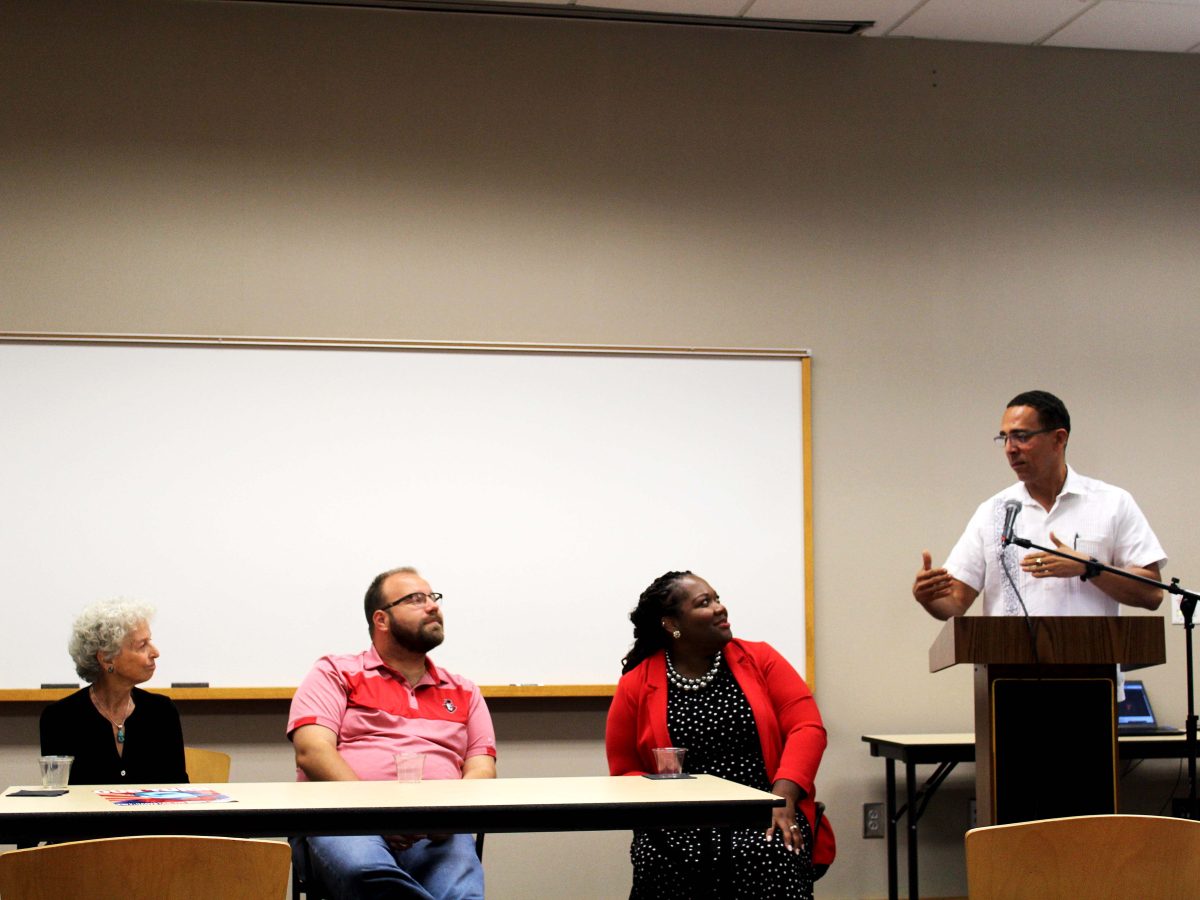 »Phillip Swanson
»Phillip Swanson
–Staff Writer
Last year, a fiery debate raged on Vanderbilt’s campus.
Could someone of a differing sexual orientation be a leader in a Christian organization?
The debate ranged from the campus all the way to Tennessee Legislature.
Vanderbilt ruled that since all students pay fees, all students should be allowed to participate in whatever level of the organization they so desire.
Jordan Rodgers, quarterback at Vanderbilt and little brother of Star NFL quarterback Aaron Rodgers, claimed as a leader in Vanderbilt’s Fellowship of Christian Athletes, “If someone that doesn’t share the faith is teaching [in it], then what’s the point of even having these organizations?”
So, the problem went to the Legislature.
A bill passed in May 2012 that mandated that a university in Tennessee could not force a student faith-based organization to not discriminate according to the organizations beliefs.
If that university did regulate whether a student organization could discriminate, the state would cut the institution’s funding. The bill would’ve have been a final say in the matter, but Gov. Bill Haslam vetoed it before it could be enforced. Upon his decision to veto the bill, he said, “Although I disagree with Vanderbilt’s policy, as someone who strongly believes in limited government, I think it is inappropriate for government to mandate the policies of a private institution.”
Now, the Supreme Court has been in session determining whether the Defense of Marriage Act (DOMA) is constitutional.
The Act, formed 17 years ago, claimed that marriage is defined as a union between a man and woman. Many believe that the act is discriminatory against someone because of their sexual orientation.
If DOMA is ruled unconstitutional, what will happen to these faith-based organizations that choose to discriminate against individuals because of their sexual orientation? If the U.S. government can no longer discriminate, will student organizations still feel entitled to?
Unfortunately, I believe that discrimination against individuals for their sexual orientation will continue.
I don’t believe it will continue for much longer, but I believe that until there is a champion among the ranks who steps up and pledges to fight for homosexuality in America there won’t be any major change.
Throughout U.S. history there has always been at least one man or woman who stood up and fought for the minority they believed should not be discriminated against.
For African Americans there was Malcolm X and Martin Luther King Jr. who helped secure civil rights.
For women there was Susan B. Anthony and Elizabeth Cady Stanton who helped secure suffrage.
Who is truly standing up for homosexuals in America?
To my knowledge I can’t think of anyone significant.
I am sure there have been a few that have tried and gotten some mild success.
Until there is someone who will fight to the bitter end for what they believe in, there will still be discrimination; a divider between those who have a “traditional” sexual orientation and those that do not.
In almost every religion there is a “Golden Rule”: treat your neighbor how you would like to be treated yourself.
Do you want to be refused the right to believe and act how you see fit, especially when your beliefs only differ with your choice in who you love?












